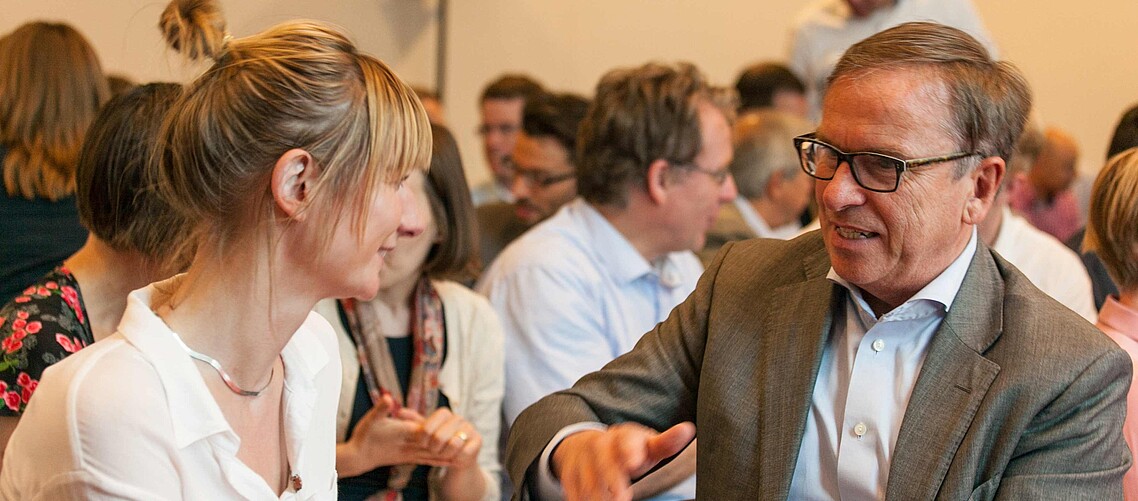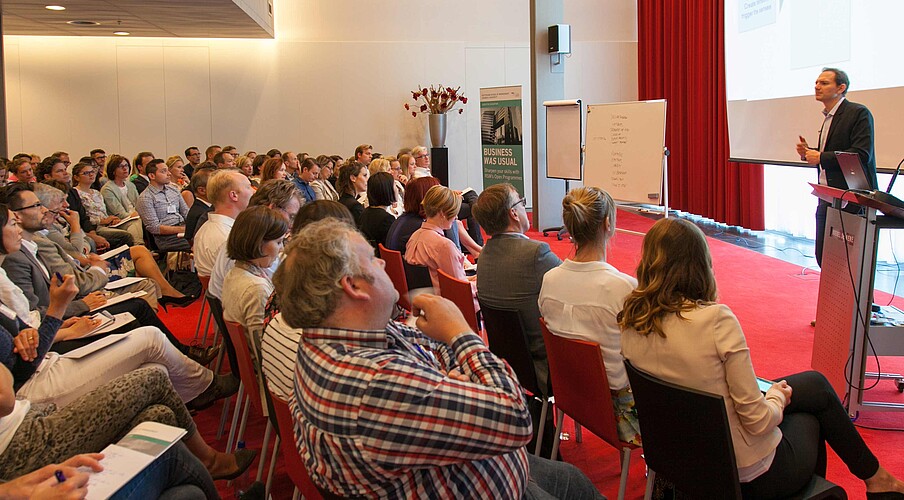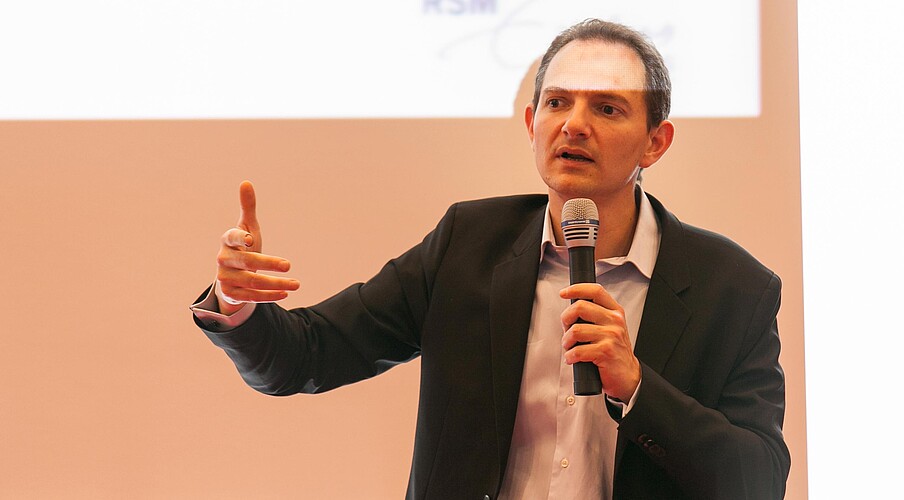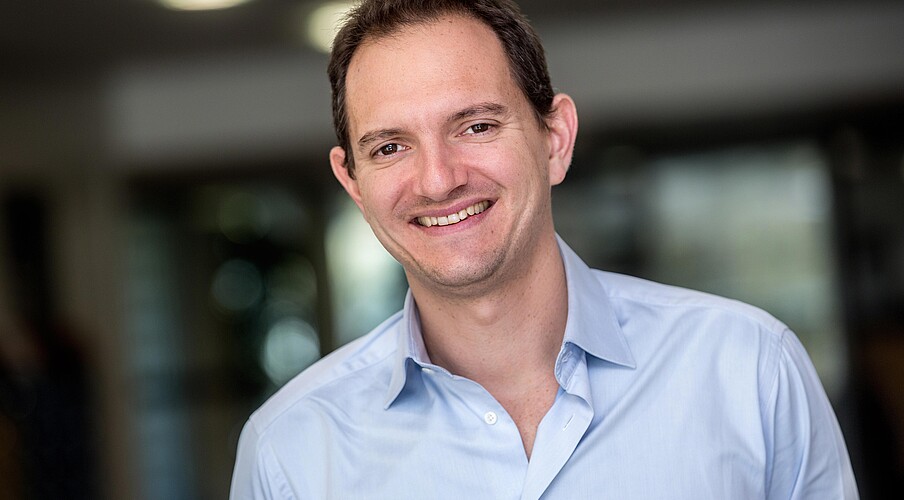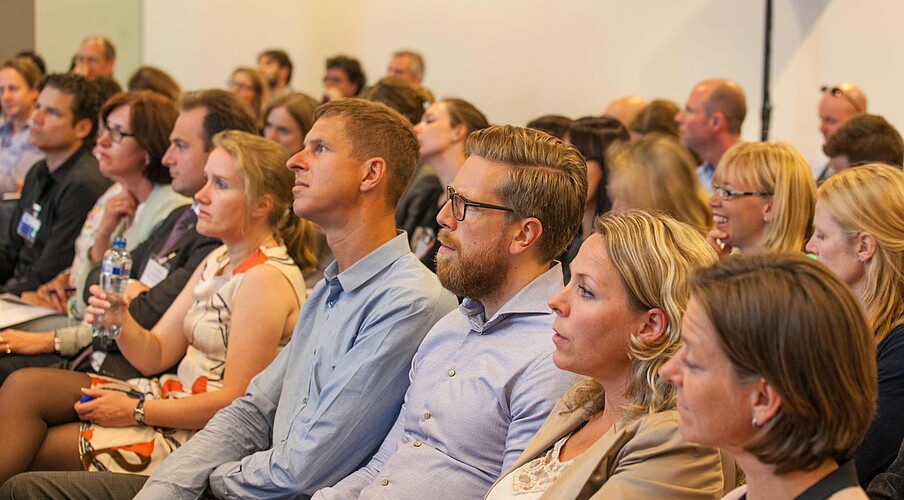“Every culture in the world has used story,” said Constantinesco. “One of a child’s favourite rituals is bedtime storytelling. We are all storytellers, and we are all part of stories. In the last few years we’ve started to talk about story in a business environment,” he said, adding that there are two ways to share knowledge: by pushing information out or by pulling listeners in.
Rational versus emotional
The key to storytelling is to emotionally engage the audience by speaking to the non-rational part of our brain, the limbic system, said Constantinesco. “We define ourselves by the neocortex, the thinking rational part of the brain. ‘I think therefore I am.’ But we don’t actually like to use that part of our brain. It’s exhausting. We like to use the emotional part of our brain, where the reward centre is,” he explained.
“When you build an argument as to why someone should buy this product you’re telling people what to think whereas telling a story is just leaving [the information] in the middle of the room and letting the listener decide whether to pick it up. It’s empowering for your audience,” explained Constantinesco, who is a visiting faculty member at RSM and teaches RSM’s one-day The Power of Storytelling programme.
Storytelling techniques
Kiki Vreeling, a consultant in personal leadership and mindfulness, described the seminar as a strong reminder to rethink her own training sessions, and to use what Constantinesco calls “the anchor; a strong headline that tells your audience where you will take them. This is good for your listeners – they can relax and enjoy the story – and it’s good for you because you plant a seed of confirmation bias.”
During the 90-minute session, the audience was invited to speak in pairs, each taking a few minutes to tell a story, one that would be repeated three times over the course of the seminar, using new techniques in each re-telling. The evolution of these stories followed an interesting pattern. The first time, stories rambled with no clear point: “I had no idea where I was going,” sighed one audience member. “I got bored with my own story,” said another.
Creating meaning
The second re-telling was stilted. “I didn’t feel anything for my story,” said Olaf Scheffers, a senior trainer for Travelbird, who was later already planning ways to replace charts and slides in his training sessions with stories that both teach and engage. “There’s something quite profound in that” replied Constantinesco, who went on to explain that it takes until the third re-telling of a story to truly understand how to retain emotion while dispensing with irrelevant details.
“The first time you tell a story, you’re speaking to the rational part of the brain. You know that relative at the dinner table that opens their mouth and everyone says ‘oh god’? They tell tiring stories. Stream-of-consciousness is hard work for the listener. You have to store all of that information in case it’s important later and try to make meaning out of it while absorbing still more information,” said Constantinesco.
Narrative Arc
Despite the myriad of story types that exist in the world, anyone can create a good story by following a simple recipe, the Narrative Arc, a formula designed to produce the right hormonal response in the listener at the right times: Cortisol, the stress hormone, focuses attention during the conflict or challenge stage of the story; Oxytocin, the nurturing hormone, creates empathy as the conflict plays out; and Dopamine, the feel-good hormone is released when a story comes to a satisfactory end.
Structure change
So how long do we have to pack all of that into a single story? “Two minutes, maximum,” said Constantinesco. He reassured his audience that a story can, and should be, short. In fact, a simple tweak can turn a single sentence into a story. For example: “I submitted a proposal because I thought it would be good for our team.” That’s a boring sentence. A small change in structure creates a proactive story, one that follows the Arc and makes an interesting sentence: “I thought our team needed a big win so I submitted a proposal.”
By the third round of audience storytelling, Constantinesco’s claim that everyone is a storyteller seemed to be true. One listener said: “I felt empathy. I felt connected to [the storyteller’s] experience. This works!”
RSM Erasmus Business Series
The RSM Erasmus Business Series is a thought-provoking, impactful, and interactive series of seminars covering a range of business topics. Each seminar is in English and aims to inspire professionals, and develop their understanding of current business issues. Previous seminars explored sustainable competitive advantage, gender-balanced leadership, the relevance of leadership, and the innovation of business models. The RSM Erasmus Business Series are organised by RSM Executive Education and take place in Amsterdam.
Rotterdam School of Management, Erasmus University (RSM) is a top-tier European business school and ranked among the top three for research. RSM provides ground-breaking research and education furthering excellence in all aspects of management and is based in the international port city of Rotterdam – a vital nexus of business, logistics and trade. RSM’s primary focus is on developing business leaders with international careers who carry their innovative mindset into a sustainable future thanks to a first-class range of bachelor, master, MBA, PhD and executive programmes. RSM also has offices in the Amsterdam Zuidas business district and in Taipei, Taiwan. www.rsm.nl
For more information on RSM or on this release, please contact Marianne Schouten, Media & Public Relations Manager for RSM, on +31 10 408 2877 or by email at mschouten@rsm.nl.
